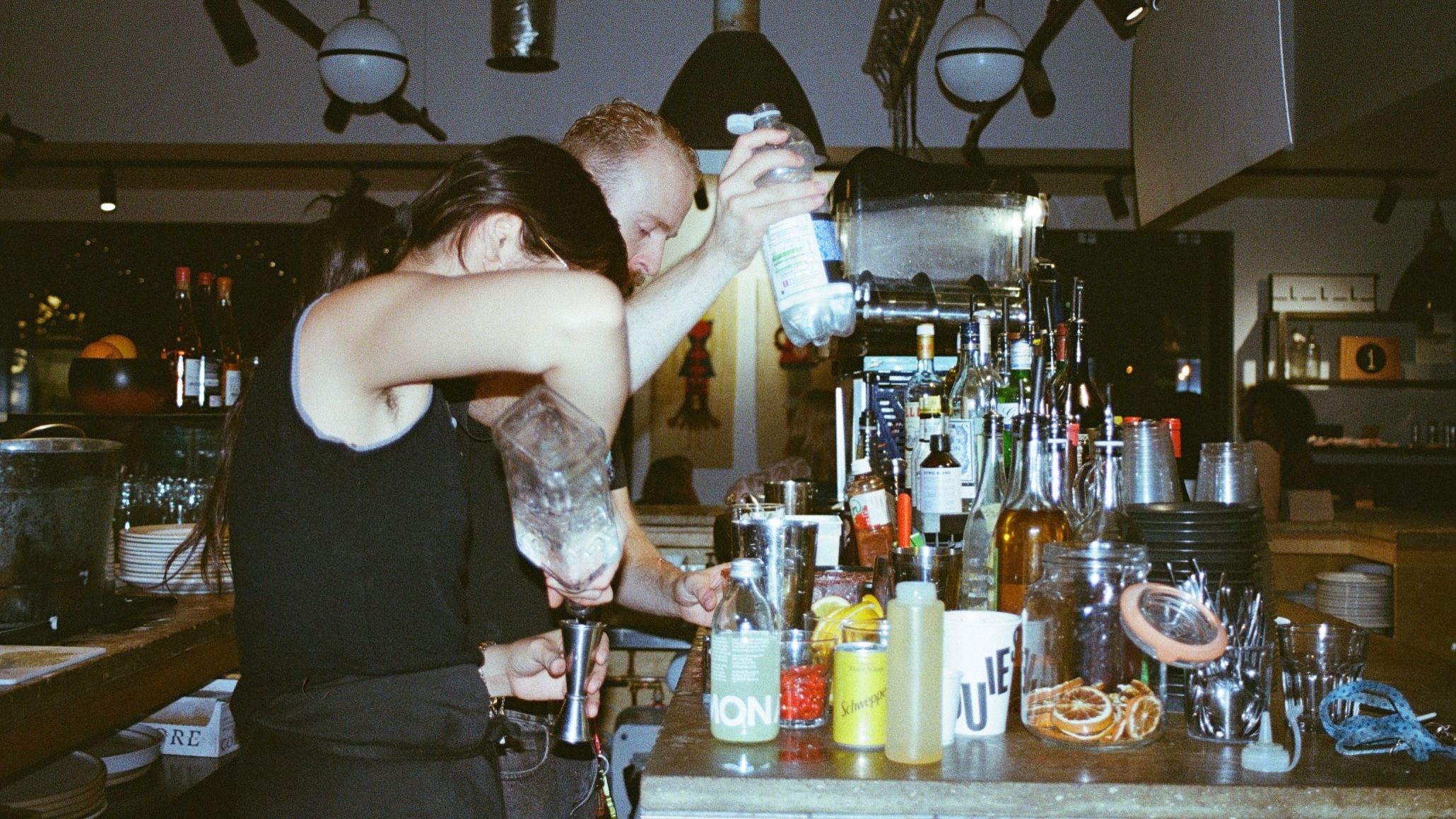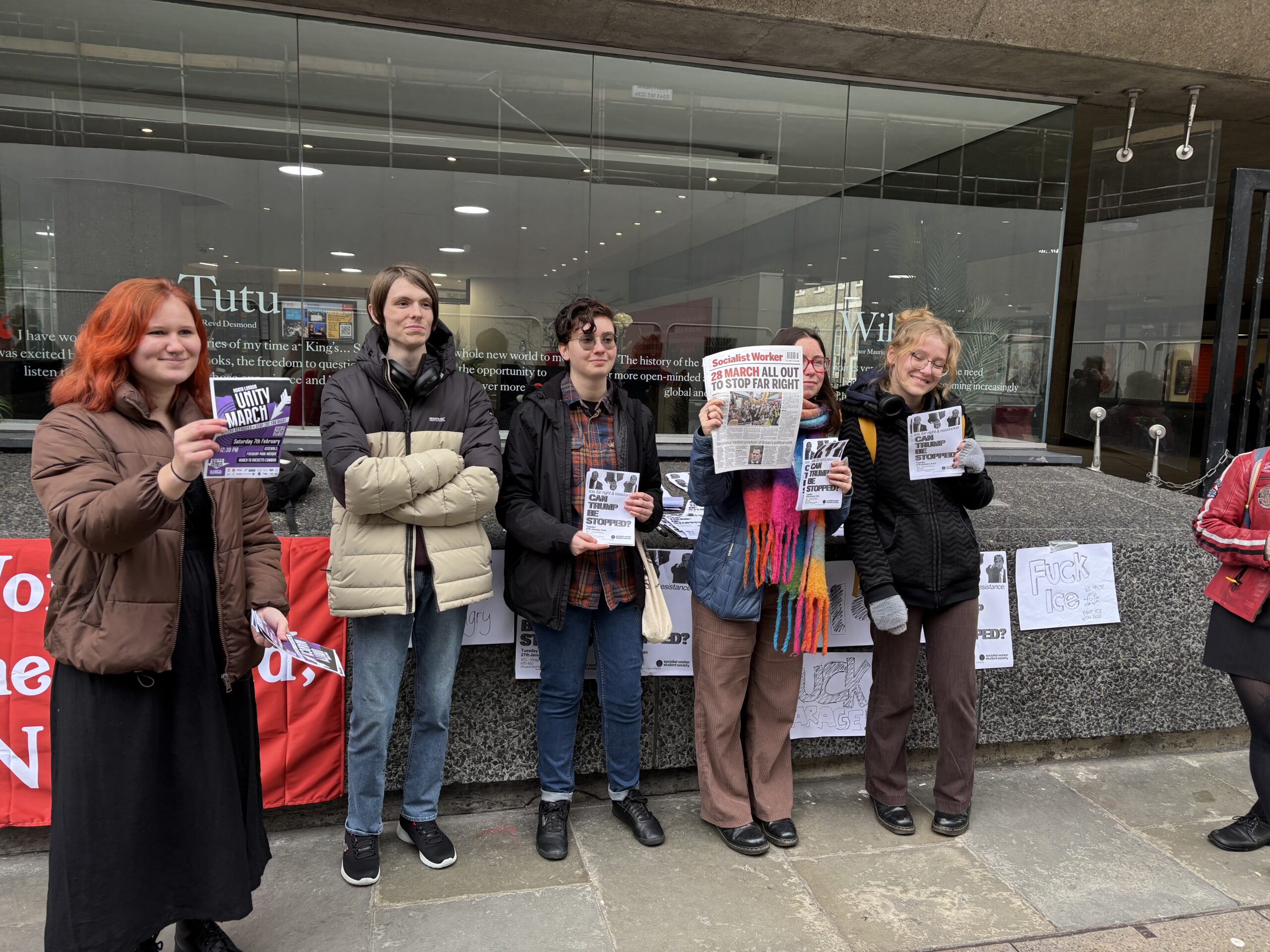Night falls in Montmartre. Winding streets of this Parisian arrondissement are lit by the amber hues of cigarettes and the light that slips through nightclub doors. Dusk is soundtracked by the percussion of dancing shoes and overlapping chatter between the silhouettes that wear them. It’s the Années folles—crazy years—of 1920s Paris, and Le Monocle opens its arms to the cast of artists, bohemians, burlesque dancers and boyish girls that frequent this lesbian bar.
A century later, if you find yourself down Boulevard Edgar Quinet, you can still find a remnant of queer debauchery in its monocle-shaped door. Where light and music once seeped onto the streets, rusted iron and peeling paint now frame a portrait of the lesbian nightlife of the 20s and 30s.
Across the channel, in London, the dwindling culture of queer nightlife is just as evident. Since 2006, the number of LGBTQ+ nightclubs has crashed from 125 to just 50 in 2022. Today, only two full-time lesbian bars exist in London: SHE Soho and Hackney’s new La Camionera. On the other side of the river is La Monocle, bringing a taste of the Années folles and a resurgence of lesbian nightlife to South London.

Having popped up at various locations across South London—including an event earlier in the year at the Pelican in Peckham— the bar has set its roots in Elephant and Castle. The new residency at Elephant Park’s Little Louie will see La Monocle take over the bar on the last Sunday of each month.
Une Terrasse Ombragée
On Sunday 27 July Une Terrasse Ombragée came to South London’s Little Louie. With a 1920s dress code, La Monocle reanimated its eponym, Le Monocle. Turning the corner of Elephant Park, you’re met with the hum of music and fragments of conversation, illuminated by fairy lights like stars. Glasses and cigarettes are engraved with lipstick stains; everyone is beautiful. The night agrees.


The event foregrounds community, individuality and queerness, highlighting queer sellers and small businesses at stalls by the bar. Shannon of Positive Oranges sells handmade jewellery, wire and pearls entangled like roots that grow inevitably together. Celeste Honey-Feliciano is an artist and creative, selling her art and badges. Nina of Herbie Studios designs, prints and tattoos, conjoining functionality and style in hues of electric blue. Amelie Roth, founder of King Cupid Events—a pop-up LGBTQ+ speed dating event—brings hand-drawn illustrations to the table.

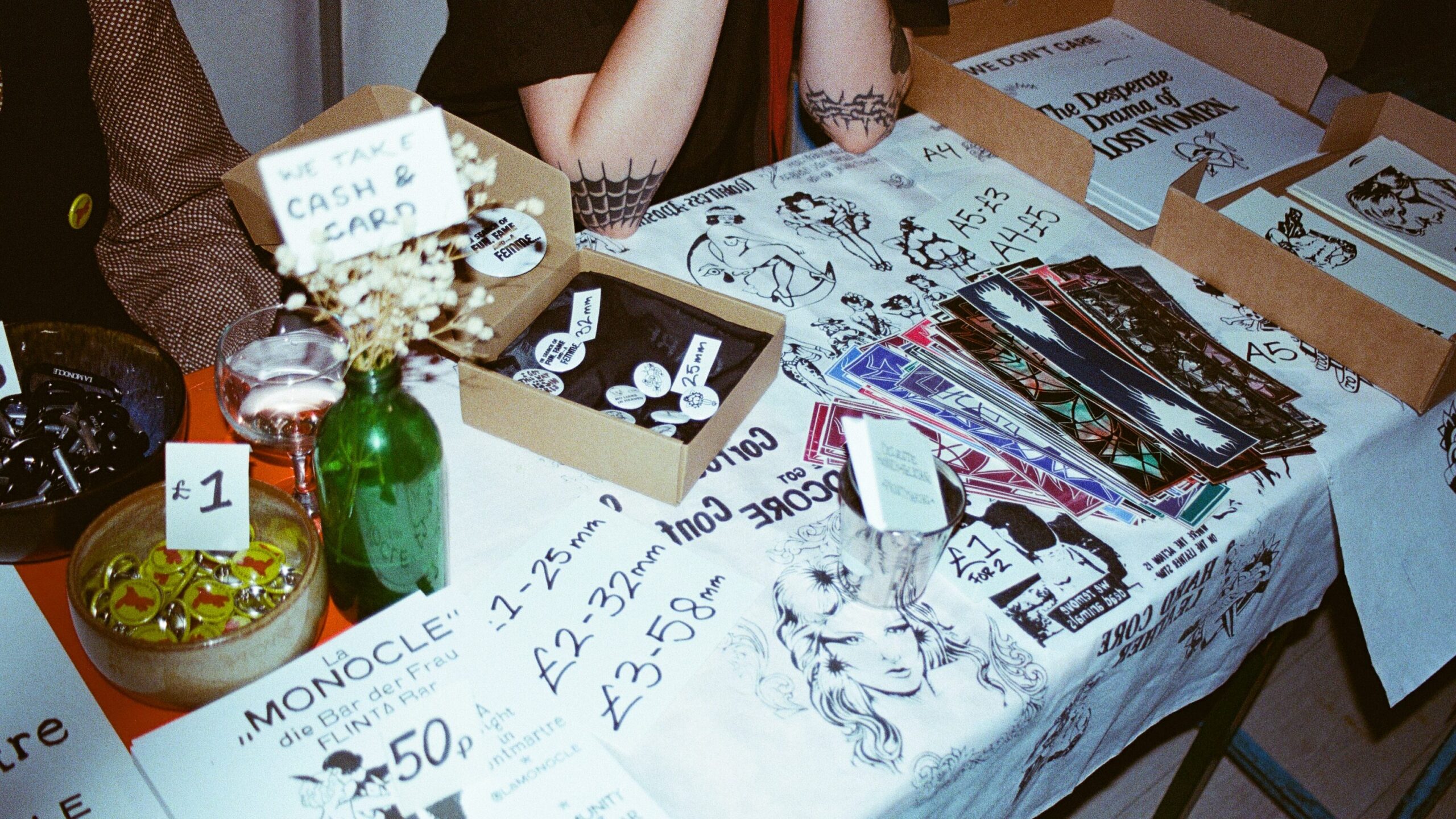
The Seller’s Corner
Talking to the creatives and sellers themselves, I’m able to paint a picture of the kind of community that makes up La Monocle.
Amelie, King Cupid Events:
How have you ended up here tonight?
“I knew Zoe, I knew about when she was starting La Monocle. I went to the first event and just really wanted to be involved!”
How does your work fit into the event tonight?
“Most of my stuff is about being queer, and it’s the art I wanted to have in my house. Hopefully, the people agree.”
And how would you describe La Monocle in three words?
“Sexy, friendly and chic. It attracts kind people.”
It is a magnet for kind people, attracting them from all corners of London, with even a couple, fittingly, from Paris. Here, the community is just that: a community. Dipping in and out of conversations and moving between tables of friends, it’s not hard to find yourself feeling as though you fit in.

Nina, Herbie Studios:
How would you describe your store? What is Herbie Studios today?
“Today, I brought a bunch of T-shirts. The girlies love these cute, tight tees. I’ve also brought some of my tattoo work, I do hand-poke tattoos, based in Brockley.”
How does your work fit into the event tonight?
“So I knew Zoe, and we got to chatting. Unfortunately I couldn’t make it to the first event, but Zoe said ‘you should definitely come sell!’ It’s fun, functional stuff. I know that we all like to be functional. My whole brand is based around the ethos of ‘you shouldn’t have to choose between style and function, it should come together’. I cycle everywhere, I work in the service industry. I like to be able to move around and still look stylish.”
How would you describe La Monocle in three words?
“Big fat gay party. That’s four.”

Everyone seemed to be linked by a common thread, an invisible string, the founder of it all; Zoe. Founding La Monocle in 2024 from an idea that struck in a Camberwell pub garden, she drew together this collective of like-minded individuals in order to create a queer space that felt true to the area and the people within.
The Women, The Myths, The Legends
Zoe and her girlfriend Aimee are the mademoiselles behind La Monocle. Zoe is the founder. Aimee is the face on socials. Together, they have brought us all here, together, tonight.
“We wanted to design a space that was inclusive of everyone”, says Aimee. From “the freakiest of freaks to the plainest of plains”, La Monocle is a space for all to “party, drink, dance and be whoever you want to be”. Running the social media, Aimee wants it to be an accessible virtual space, as much as the physical one is.
“Celebratory, filthy… and a little bit c*nty”
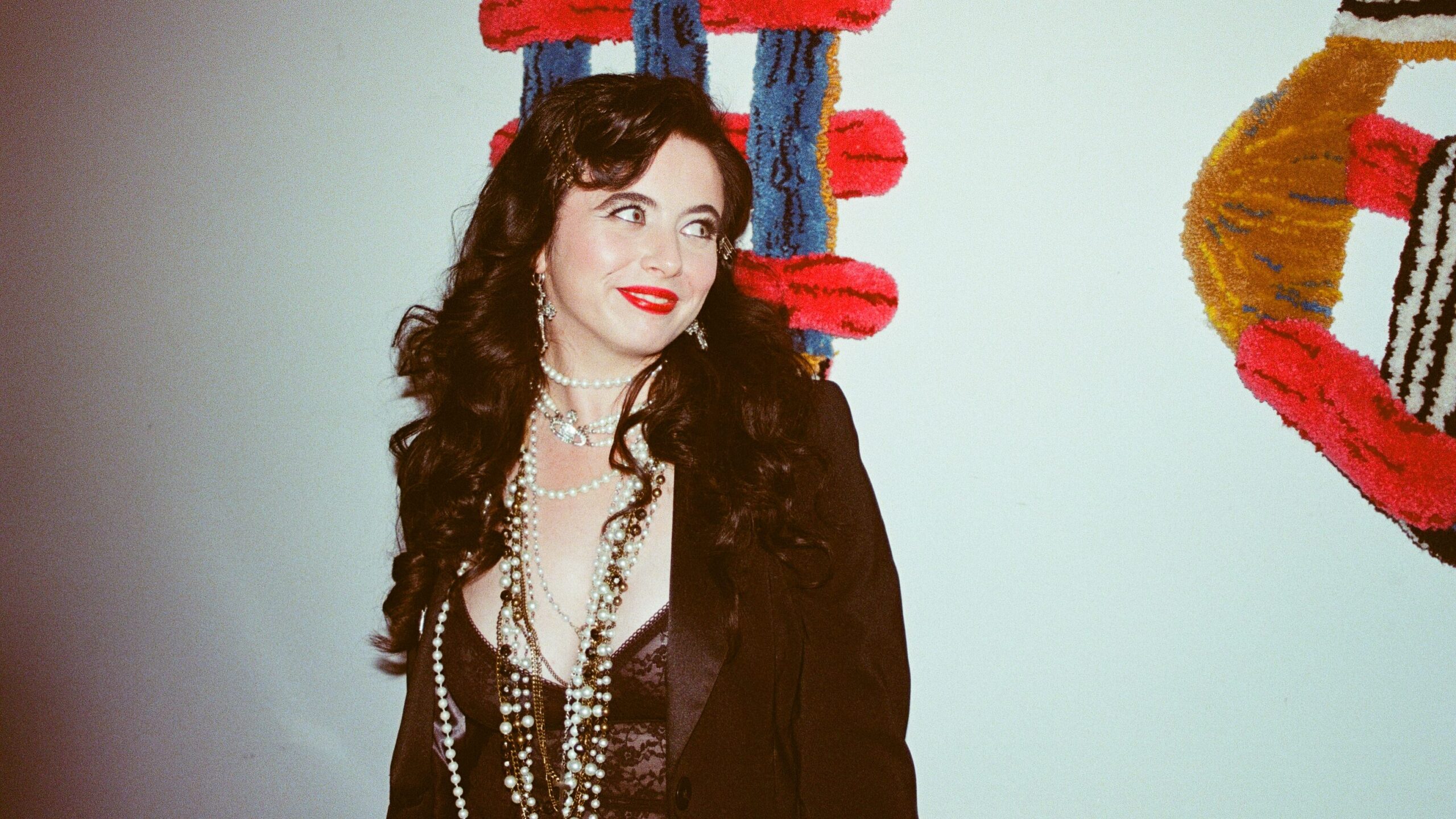
She makes full use of social media. “We’ve had people travel from Paris!” she tells me proudly. Her pride is fitting, with hundreds of tickets sold, and the air of celebration filling the room. She describes the night (“Zoe’s baby”) as “celebratory, filthy… and a little bit c*nty.” Her outfit, inspired by Marlene Dietrich plus “Y2K, filthy, secretary vibes”, features vintage lace, an ocean of pearls, and 1920s finger waves combined with a Hollywood blowout.
The Founding Mother
I wanted to know what inspired Zoe to start La Monocle. “I wanted to open a bar, that’s my dream job”, she tells me. Having moved to South London to study painting at Camberwell, she was hyperaware of her place and role in the gentrification of the area.

“I’m very conscious of being a white person coming into Camberwell or Peckham, very much as a gentrifier. I mean, I’m not grabbing up loads of property, but I’m coming into this gentrified space as somebody who is trying to benefit from the queer culture, and the cultures that surround it.” It’s for this reason that preserving the diversity of South London is so integral to her goal. For Zoe, opening a bar anywhere in South London that didn’t include the Black and Hispanic communities would mean failure. Every step in the process seeks to be inclusive in totality. From taking outfit inspiration from a myriad of people, to accessible pricing—including concession tickets—it was fundamental to take the inclusivity of Le Monocle so many steps further.

When naming La Monocle, the choice to substitute Le to La was deliberate. “I really love the French language” starts Zoe, “but it’s really gendered.” For her, it was really important to push past set gender linguistically. FLINTA* is a German acronym that stands for Frauen, Lesben, Intergeschlechtliche, Nicht-binäre, Trans, Agender. Translating to Female, Lesbian, Intersex, Non-binary, Transgender, Agender, the asterisk represents and acknowledges the total fluidity of gender. Thus, changing the masculine gendered Le to a feminine La allowed Zoe to “femme it up” and “fuck over the French language”.
“A camp, disgusting community”


Somewhere to dance and something to drink.
Another fundament of La Monocle is the use of independently run venues. “I wouldn’t do a company”, Zoe asserts. It is important to her that the space reflects the morals and values of the community. Little Louie is the youngest of an independent chain of coffee shops, bakeries, and restaurants called The Louies. The business owners’ politics and morals align beautifully with La Monocle’s. Community is core at the Louies, from the music to the chefs in residence. Moreover, Elephant Park is both a safe and an accessible location, featuring a vibrant, glowing queer community.
Pinstripes and pearls fill the dance floor and flood onto the terrace. Red lips are pressed to glasses. The bartenders are shaking up a storm of Little Louie’s cocktail list. The holy margarita is hot with the tickle of tajín and punch of lime, while the hibiscus slim ripples sweet citrus through a floral garden. The white linen, which I spent my night recommending to anyone that would listen, is ambrosia, as it muddles the freshness of cucumber with the brightness of lemon, and finishes with the saccharine of elderflower, like nectar. Of course wines and beers pour, as if Dionysus himself were behind the bar. For those less tempted by or interested in the array of alcoholic drinks on offer, there are soft drinks and mocktails. Both the hibiscus slim and white linen offer non-alcoholic counterparts, which are equally delicious.
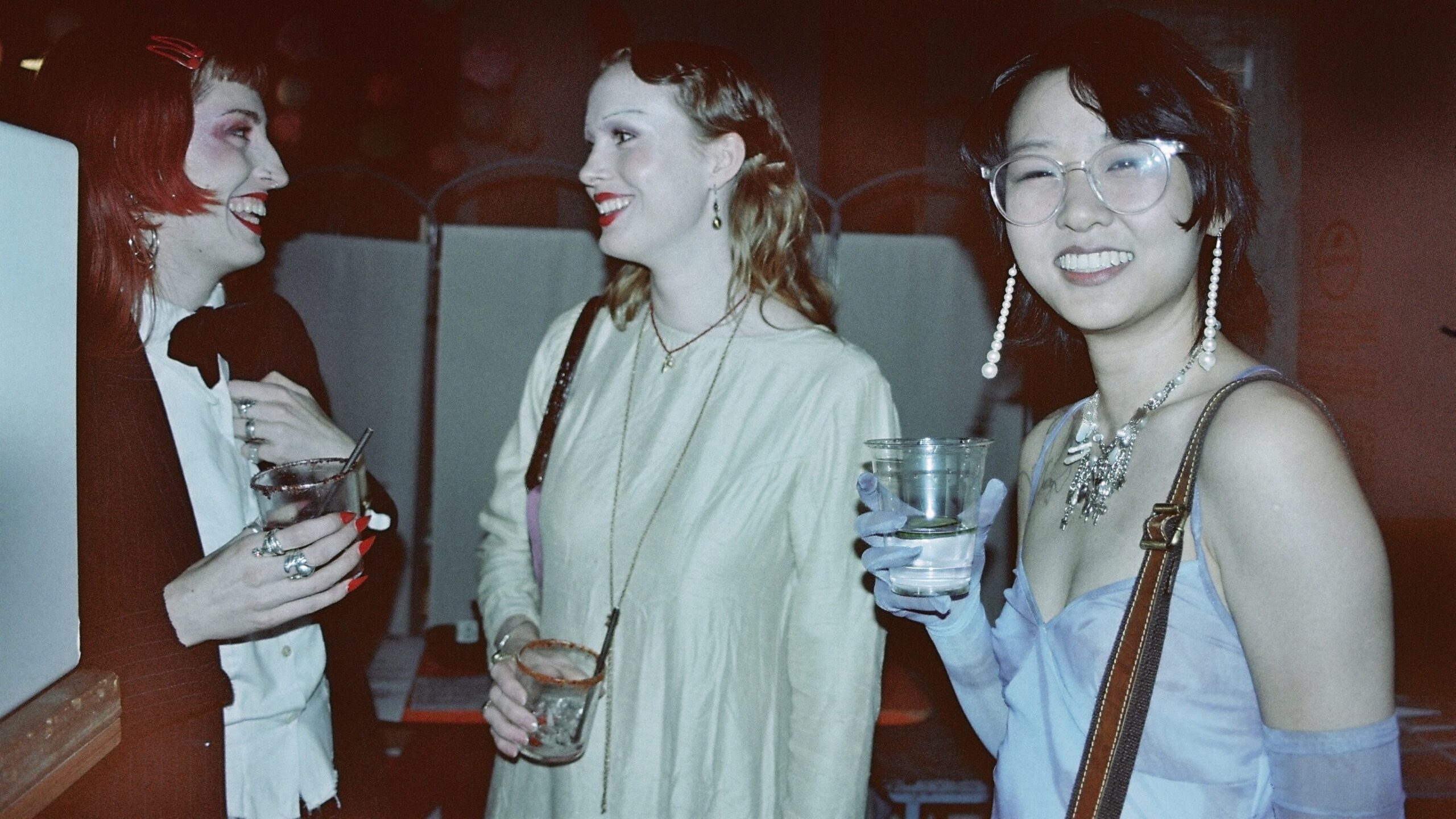
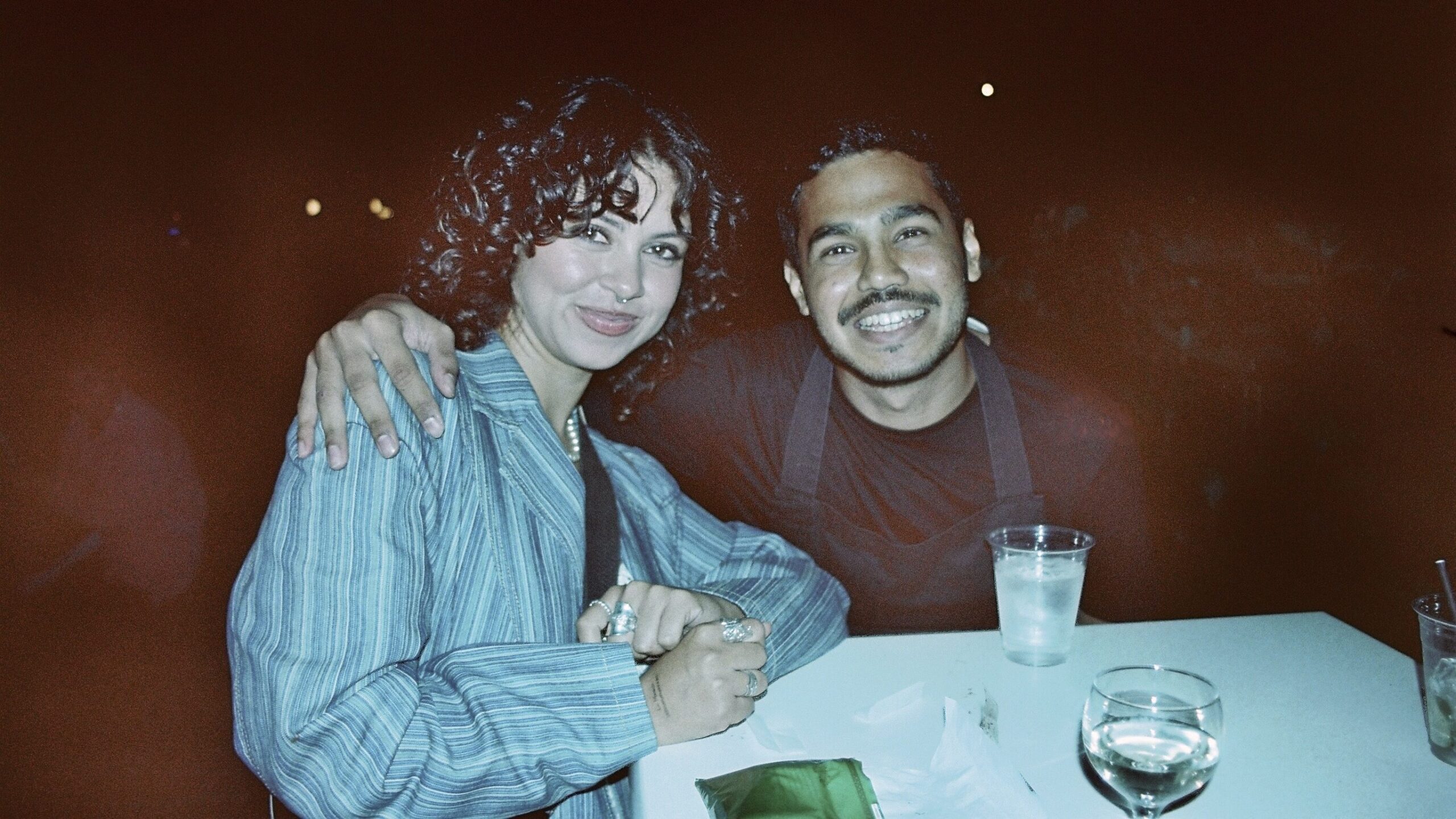
After its return in August, the next La Monocle event will take place on Saturday 27 September. To buy your ticket and stay in the loop, head to La Monocle’s Instagram. See you there. Bonsoir!

